Latest News
“FG Vows To Turn Nigeria Into Global Manufacturing Powerhouse — Shettima”
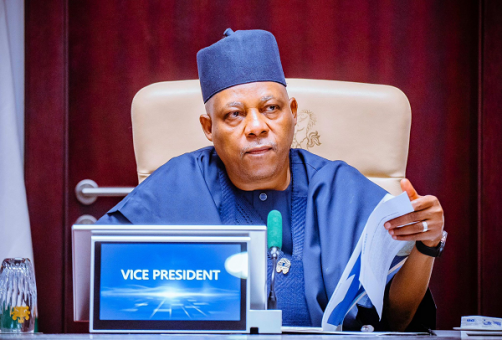
Vice President Kashim Shettima has reiterated the federal government’s determination to strengthen support for local production and drive Nigeria toward a self-sustaining, innovation-led economy. According to Ireporter Online, Shettima, represented by the Special Adviser on Special Duties, Dr. Aliyu Modibbo Umar, made the commitment at the Made in Naija Trade Exhibition organised by the House of Representatives Committee on Commerce.
He noted that Nigeria’s global relevance will be shaped by its capacity to create, stressing that the country’s future rests on the ingenuity, resilience, and enterprise of its citizens. Shettima described the exhibition as more than a showcase of products but a bold declaration of national intent to elevate the value of locally made goods. He emphasised that true national wealth lies not in natural resources alone but in the ability of Nigerians to transform those resources into globally competitive products.
Highlighting the importance of patronising local brands, Shettima maintained that choosing Nigerian-made goods strengthens the naira, boosts job creation, supports entrepreneurs, and reduces reliance on unpredictable global supply chains. He added that local products must not only meet domestic needs but also earn a reputation for quality and innovation on the global stage. He reaffirmed President Bola Ahmed Tinubu’s commitment to positioning Nigeria as a manufacturing and innovation hub by expanding access to financing, enhancing infrastructure, reforming ports, and establishing special economic zones.
Speaker of the House of Representatives, Rt. Hon. Abbas Tajudeen, also reaffirmed the National Assembly’s backing for policies that prioritise locally produced goods, noting that Nigeria must shift from an import-dependent system to one anchored on value addition, domestic production, and competitiveness under the African Continental Free Trade Area (AfCFTA). He described the Nigeria First Policy—mandating that government agencies prioritise local products in procurement—as a major step toward industrial revival, stressing that manufacturers must ensure their goods meet global standards.
Abbas added that embracing locally made goods is a civic duty, as each purchase strengthens the economy and reinforces national identity. He urged Nigerians to take cues from countries that achieved global competitiveness by investing heavily in local manufacturing and value addition.
Chairman of the House Committee on Commerce, Hon. Ahmed Munir, said Nigeria is on the brink of an industrial rebirth driven by local manufacturing, innovation, and supportive legislation. He projected that increased focus on local content could create over five million jobs by 2030, shifting millions of young Nigerians into productive sectors. Munir stated that reducing dependence on imports could save the country up to $20 billion annually, noting that this aligns with President Tinubu’s economic priorities.
He also disclosed that the expansion of the non-oil sector has moved from aspiration to policy, with locally made products expected to contribute an additional 5 percent to national GDP within the next five years. Munir said the goal is for Nigerian-made goods to compete not only domestically but in major global markets. He cited ongoing legislative efforts such as the domestication of the AfCFTA agreement, establishment of a national Weights and Measures Centre, and reforms to strengthen regulatory standards. He affirmed that the House remains committed to building a resilient economic foundation anchored on Nigerian-made products and sustained by policies that encourage innovation and long-term prosperity.
-
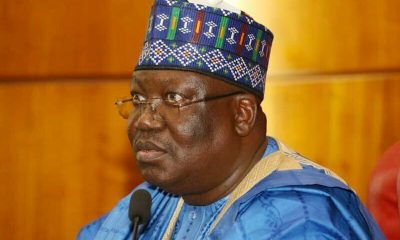
 Latest News6 days ago
Latest News6 days ago“Tinubu Is Open To All Nigerians — Ahmed Lawan Fires Back At Critics”
-

 Latest News2 weeks ago
Latest News2 weeks ago“I Owe No One An Apology” – Senate Leader Bamidele Declares Unshakable Loyalty To Governor Oyebanji
-

 Latest News2 weeks ago
Latest News2 weeks agoEFCC Restores Hope: 70-Year-Old Widow Reclaims ₦42.5 Million Stolen By Banker
-

 Latest News2 weeks ago
Latest News2 weeks agoFuel Prices Crash Again As Dangote, BOVAS, AA Rano Lead Fresh Market Adjustments
-

 Latest News1 week ago
Latest News1 week agoDefence Headquarters Responds Hours After Wike’s Heated Clash With Military Officers
-
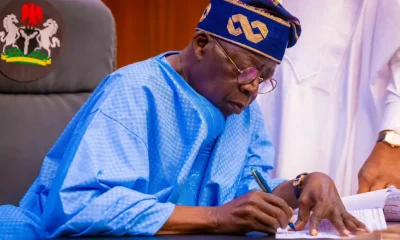
 Latest News1 day ago
Latest News1 day agoTinubu Finalises Ambassadorial List, Set To Dispatch Nominees To Senate Anytime
-

 Latest News2 weeks ago
Latest News2 weeks agoRegina Daniels Begs Ex: “Please Don’t Release My S3x Tape” — Actress Vows Legal Fight
-
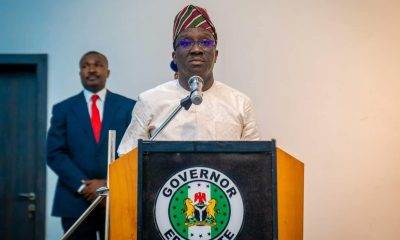
 Latest News6 days ago
Latest News6 days agoOkpebholo Drops The Hammer: Two Edo Monarchs Dethroned Amid Rising Tensions
-
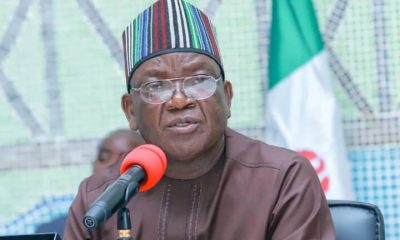
 Latest News2 days ago
Latest News2 days agoChaos In Abuja As Ex-Governor Ortom Forced Out Of PDP Meeting Amid Power Struggle
-

 Latest News2 days ago
Latest News2 days agoNigeria At COP30 — Momoh’s Strategic Engagement Reshapes The Country’s Climate Presence In Belém
-

 Latest News1 week ago
Latest News1 week ago“Marry My Daughter!” — US Soldier Offers Daughter To Lt. Yerima After Viral Clash With Wike
-

 Latest News4 days ago
Latest News4 days agoTinubu Poised To Release Powerful New Ambassadorial List After Nationwide Diplomatic Overhaul



